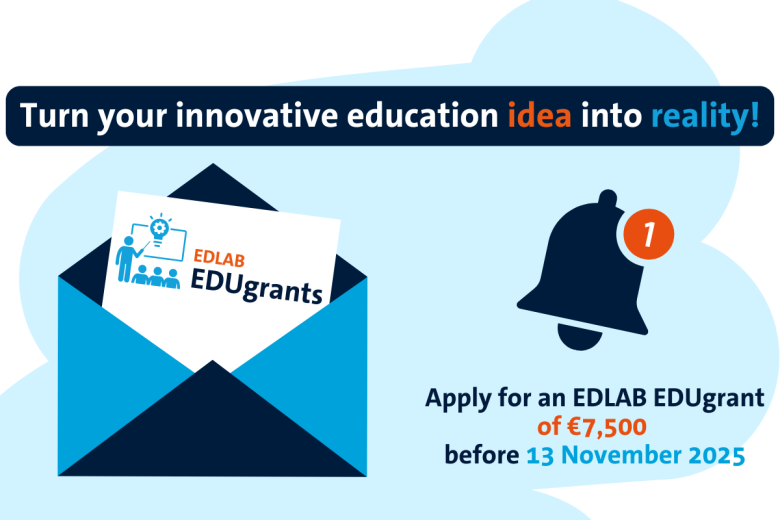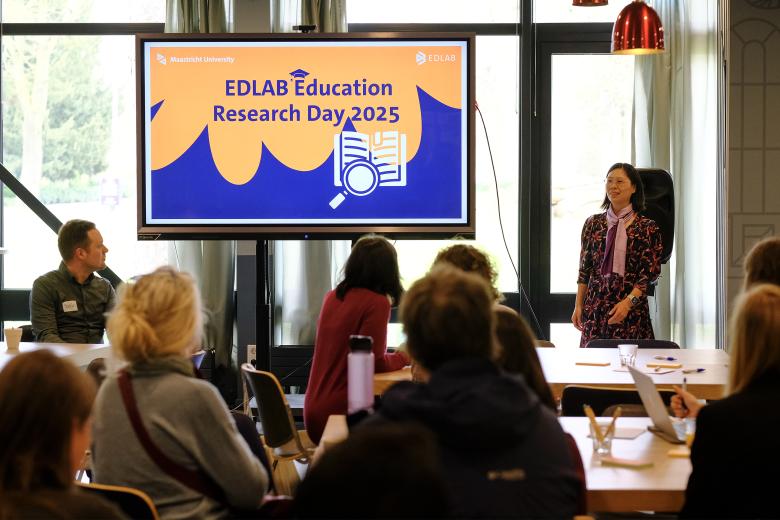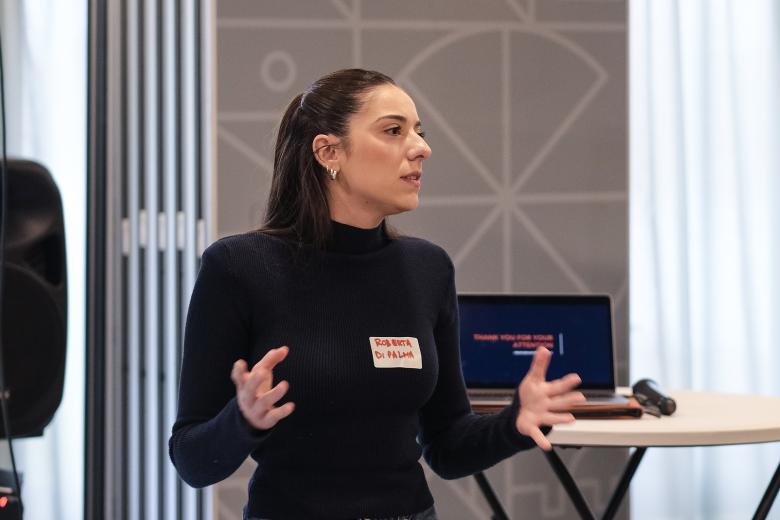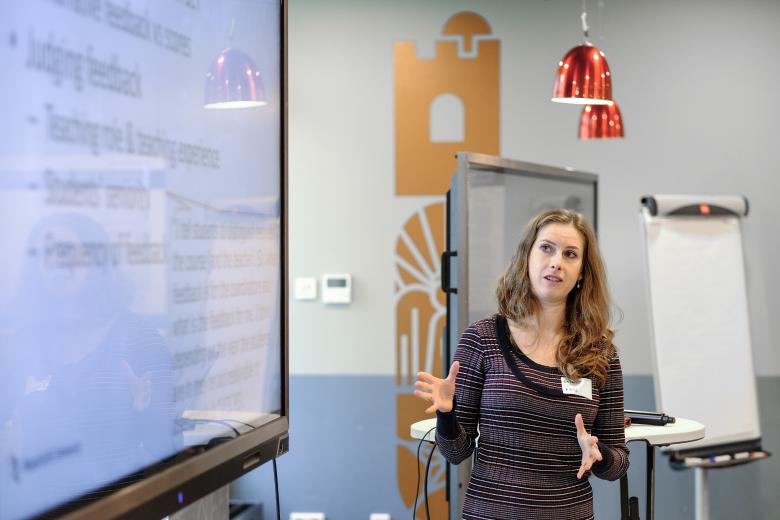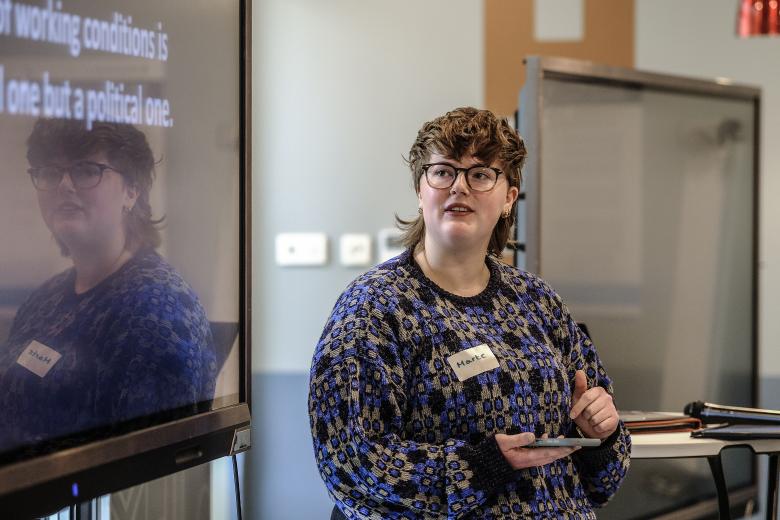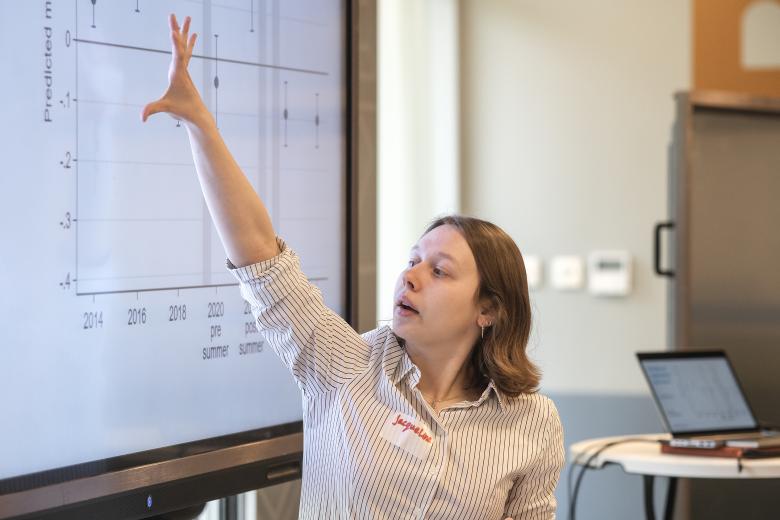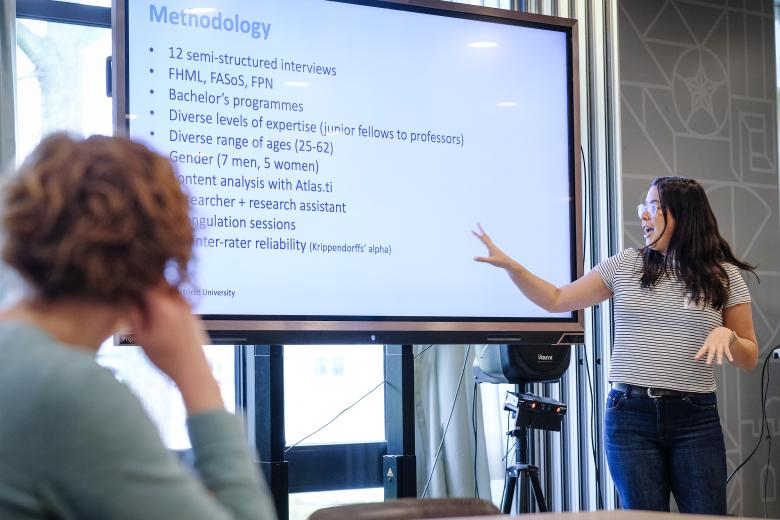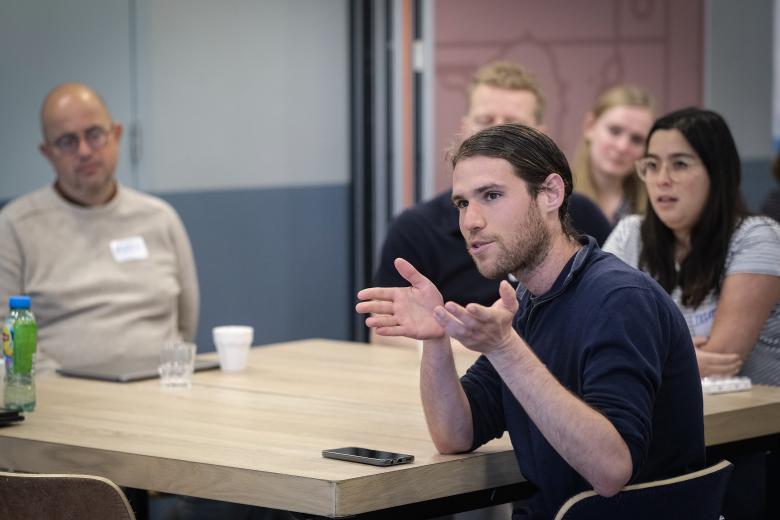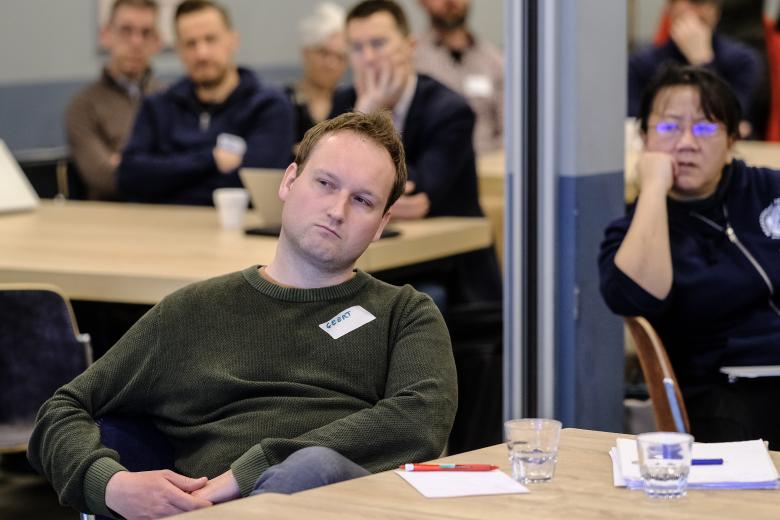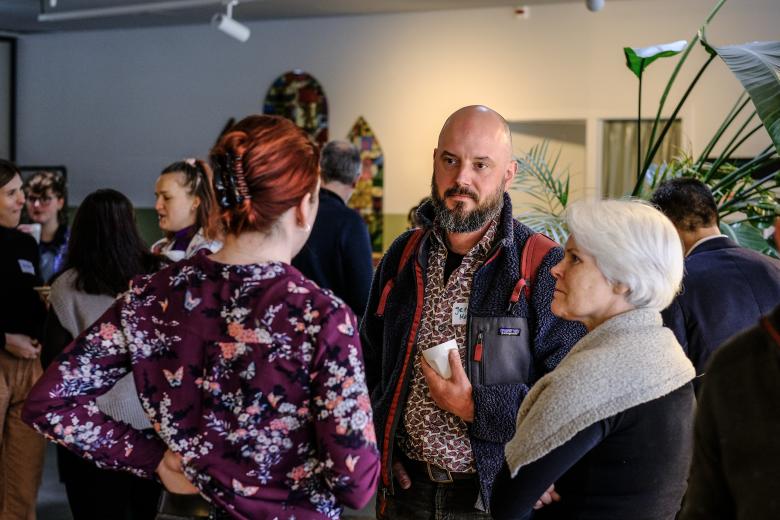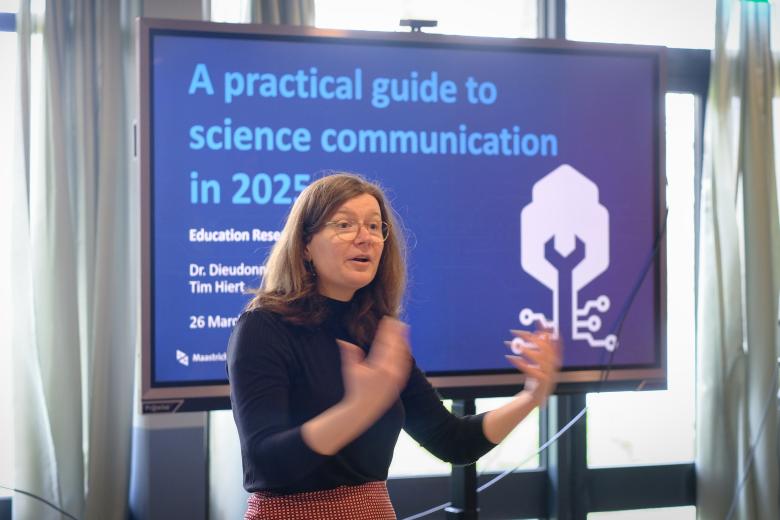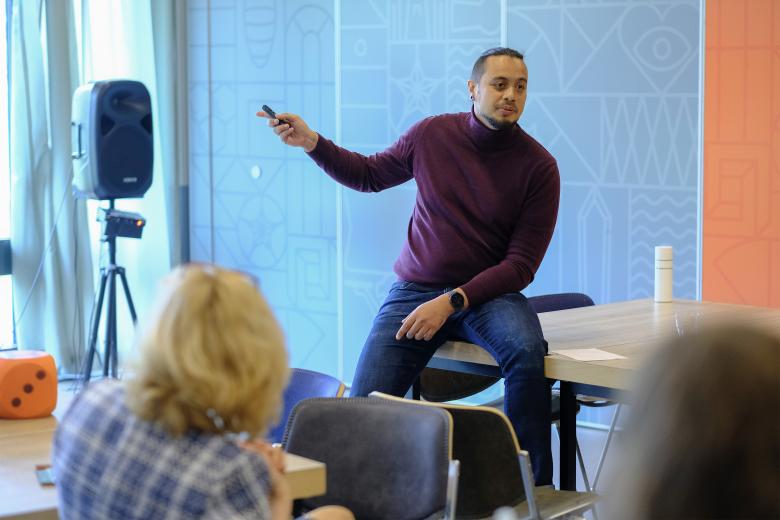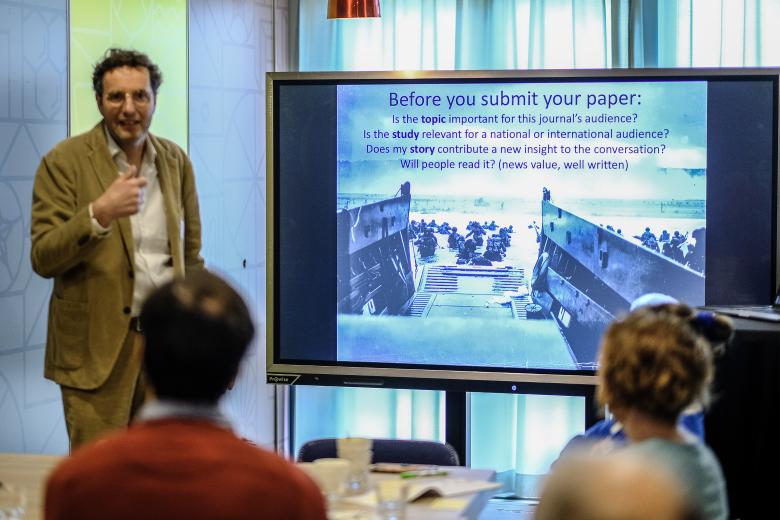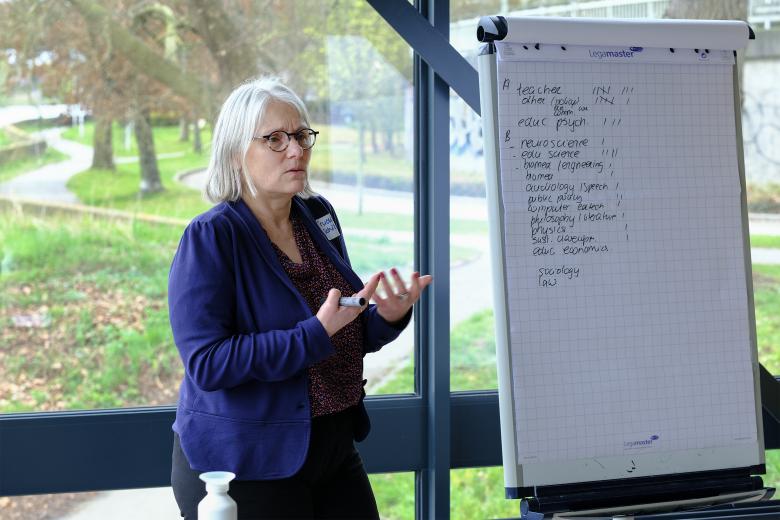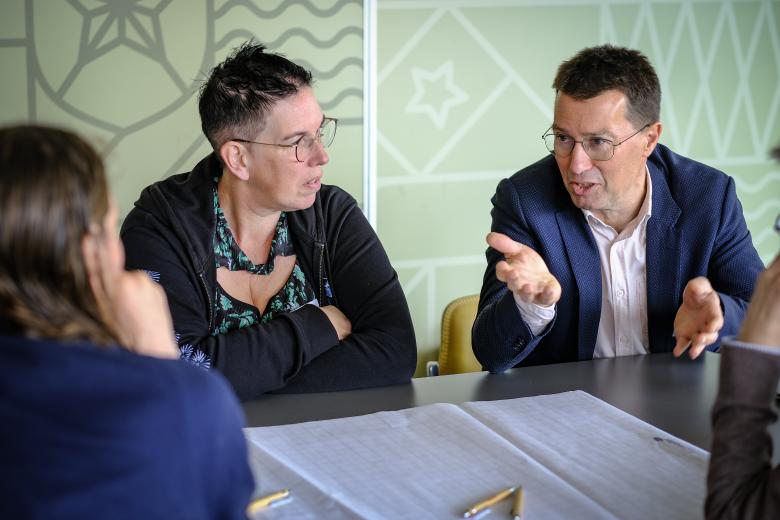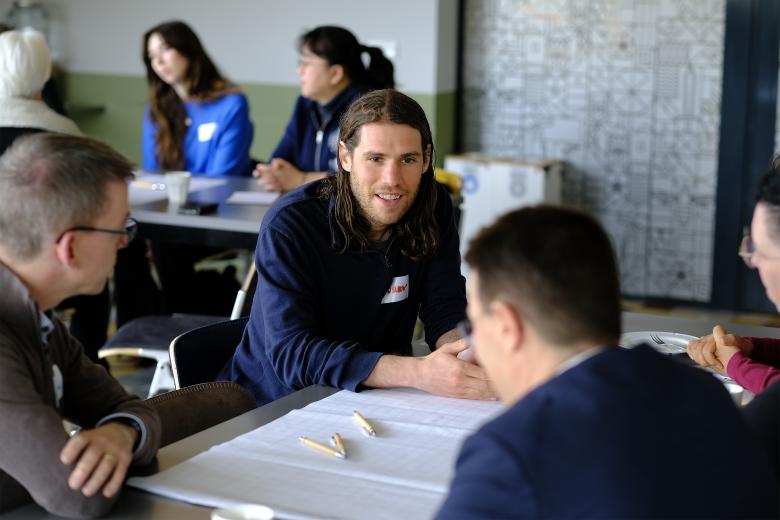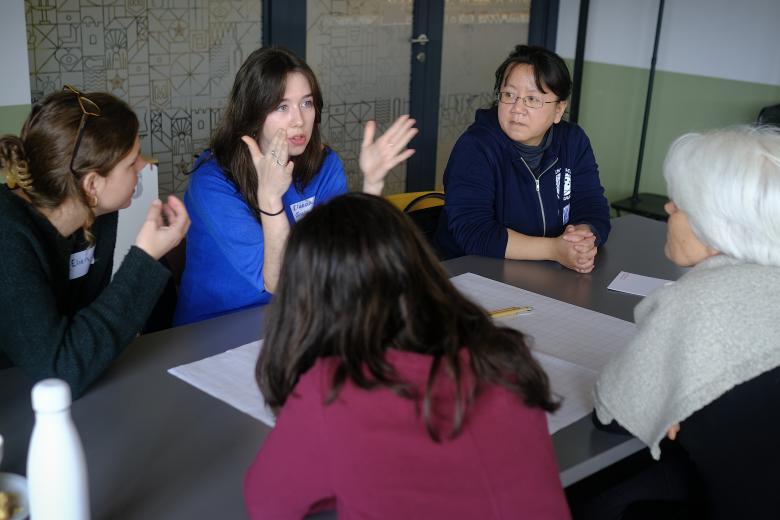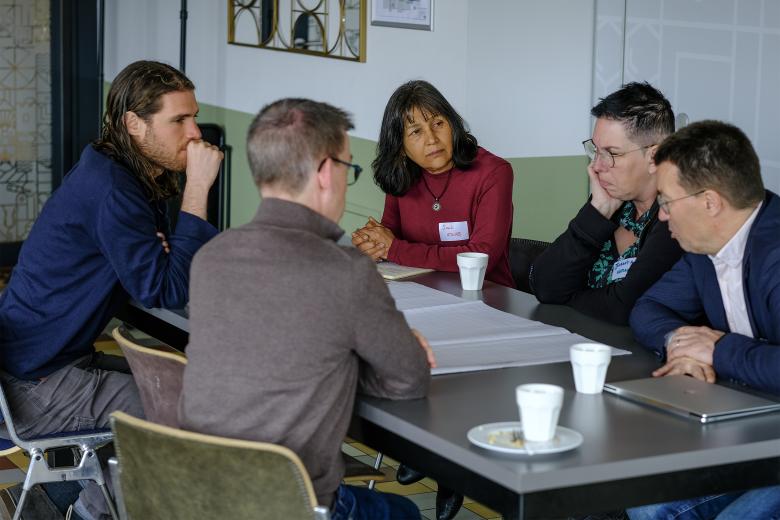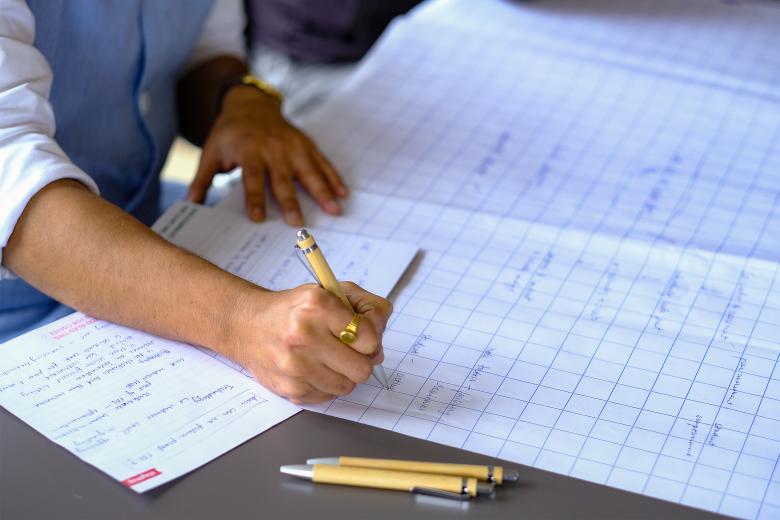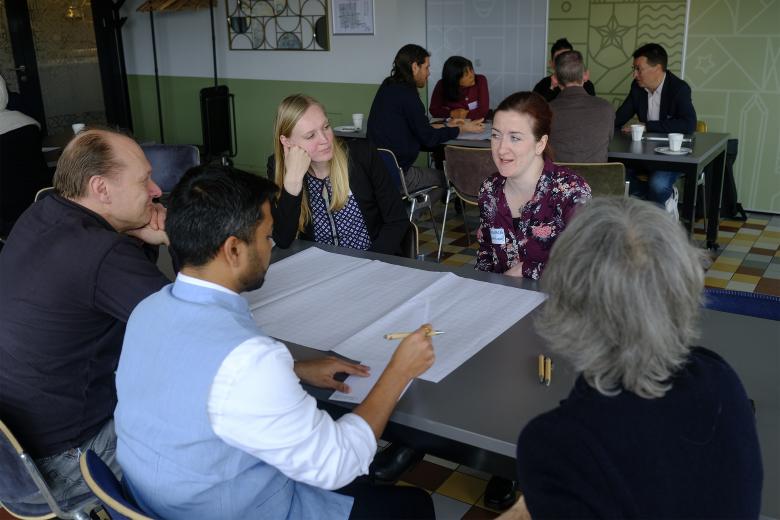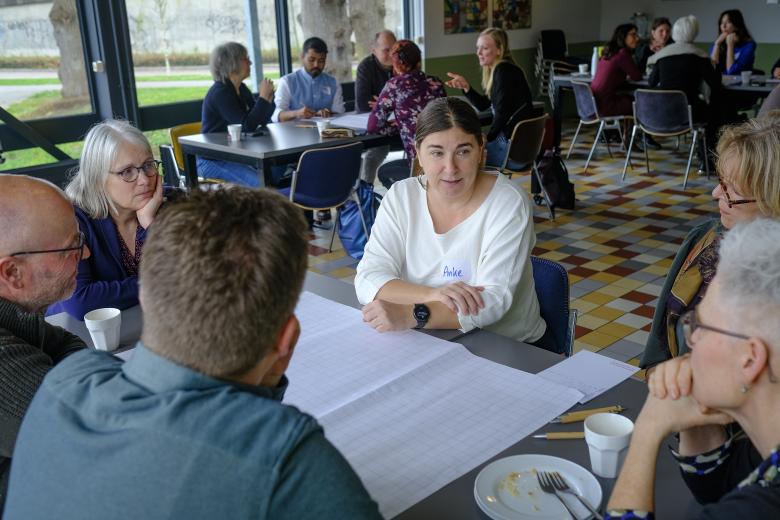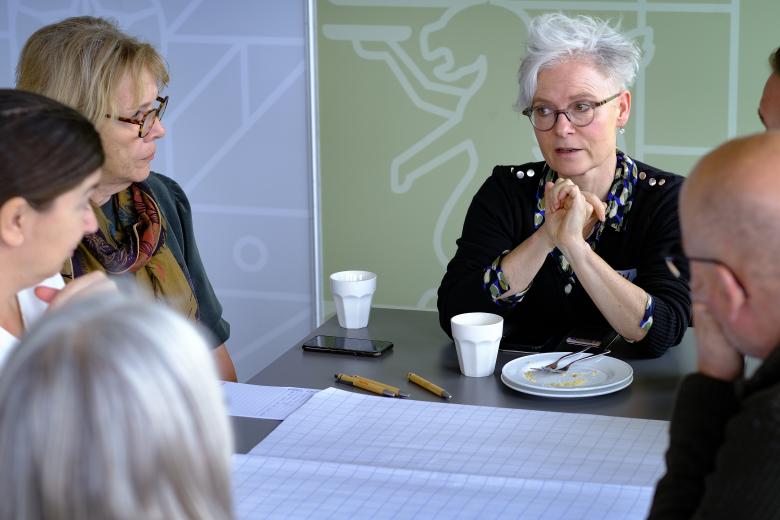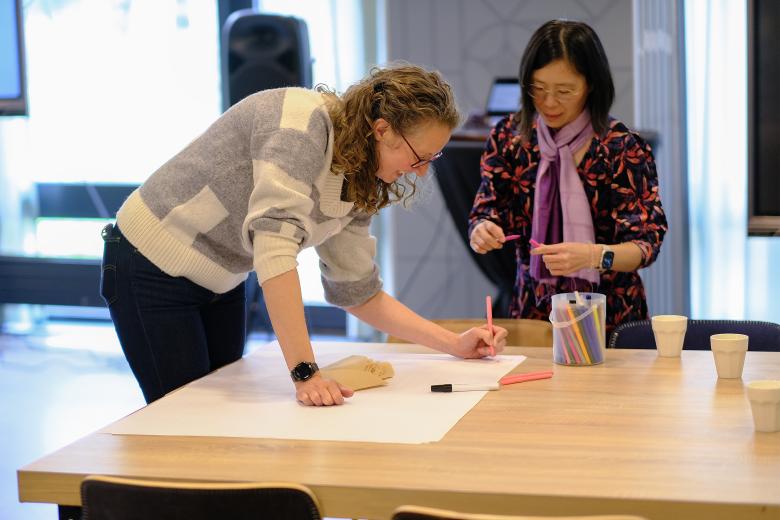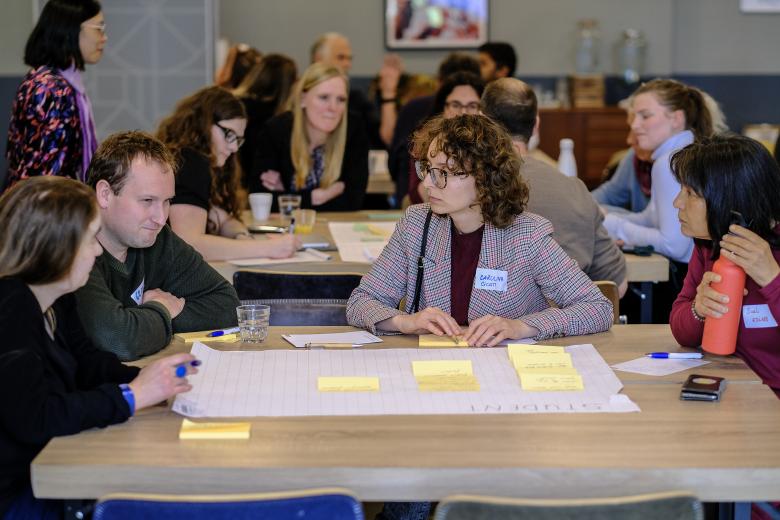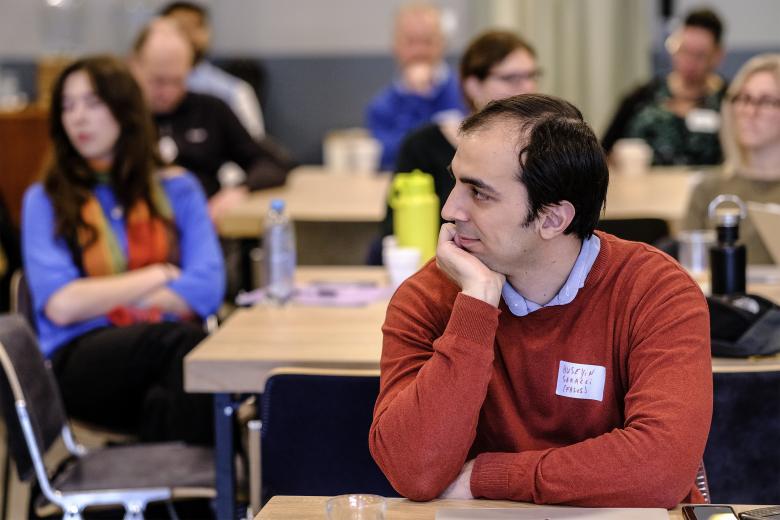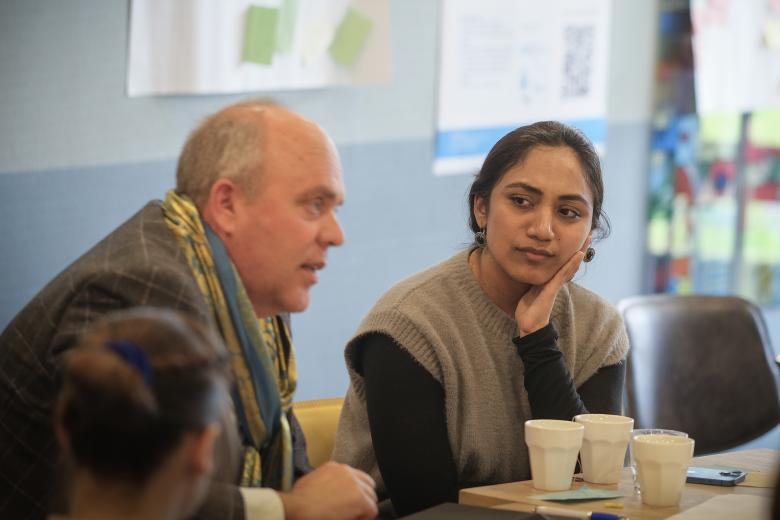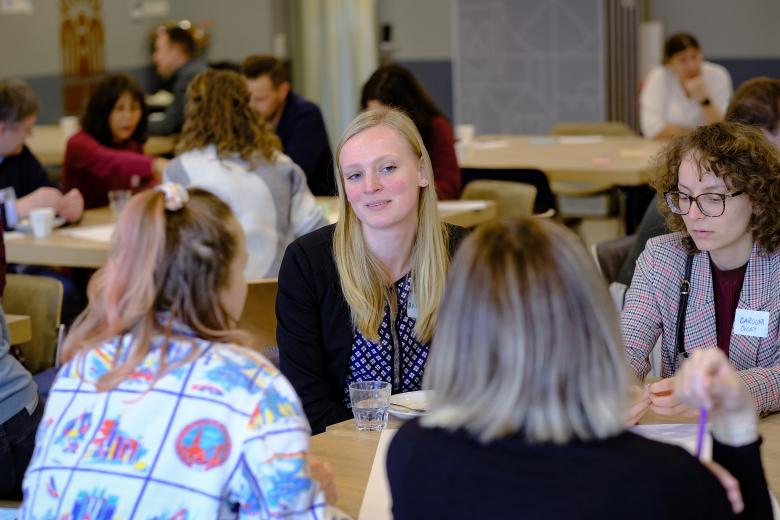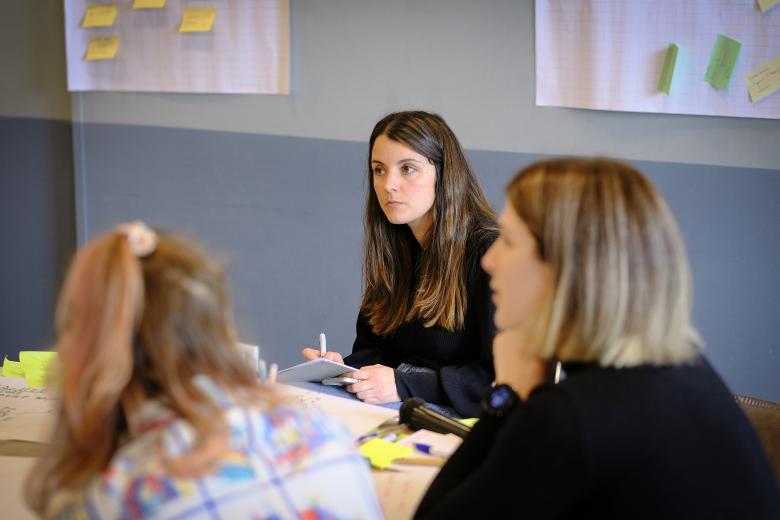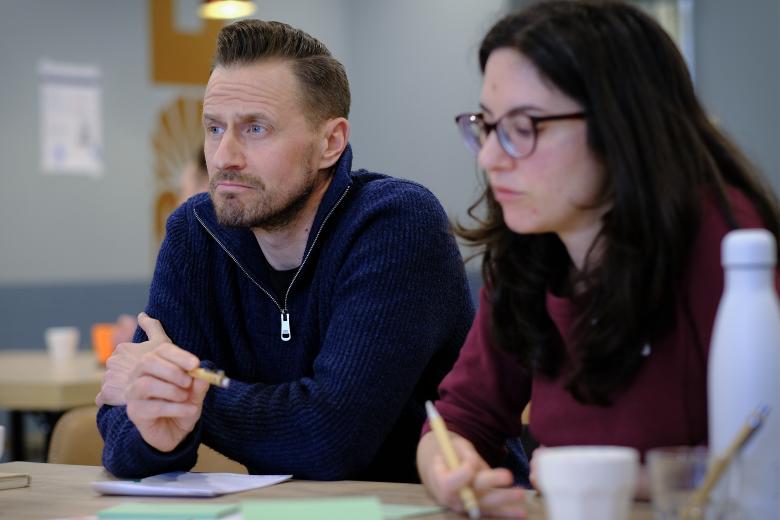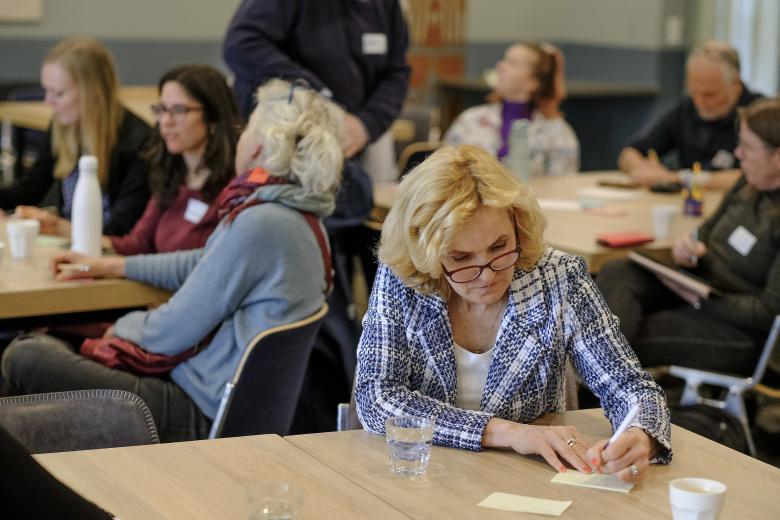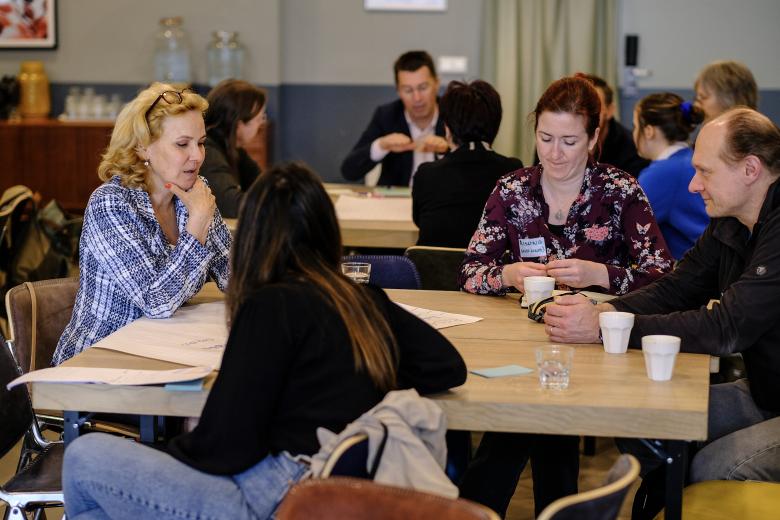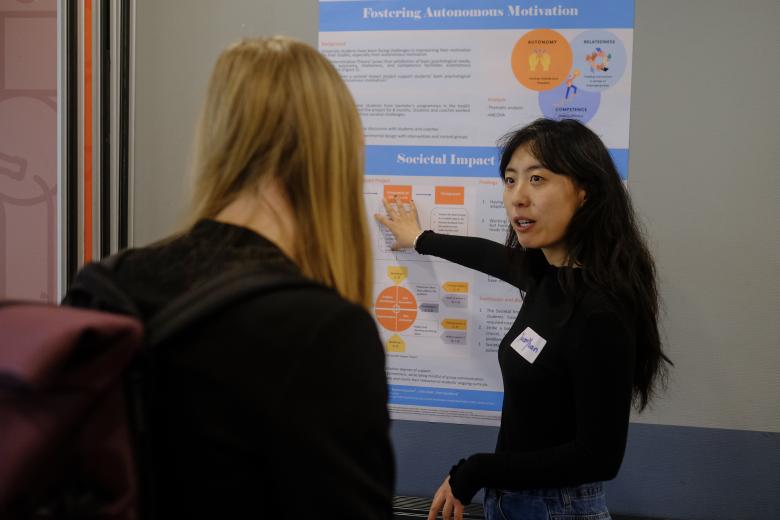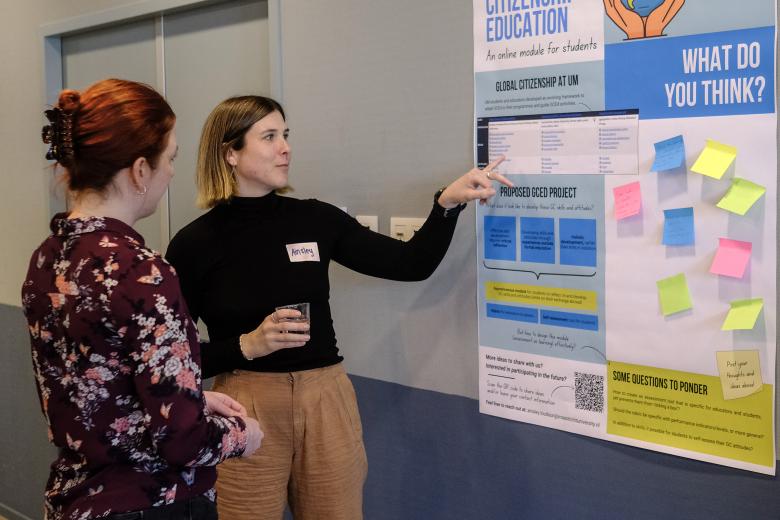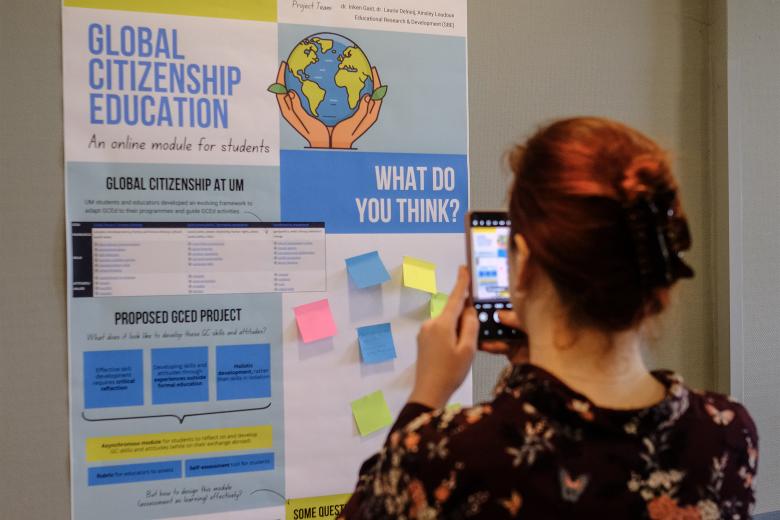UM Education Research Day builds community and connects research with practice
What will Maastricht University education be like in 2040, and how can education research sharpen our understanding of the changes needed and how to best innovate in practice? Inspired by these pressing and complex questions, more than 60 UM staff gathered on 26 March 2025 at the StayOkay Hostel to participate in the first UM Education Research Day, hosted by EDLAB. It was a fun day of meaningful and thought-provoking knowledge exchange, connection, skill development and interdisciplinary collaboration.
With the message, “today is about bringing knowledge and practice together,” EDLAB Director Ellen Bastiaens kicked off the event with an invitation to be curious and open to learn from each other’s passion and expertise. Building upon this, Anke Sambeth, Vice-Dean Education at FPN and moderator for the day, shared that this day had been planned in response to requests from education researchers "for stronger links, more chances to connect with the teaching and learning community, and room for inspiration.”
Research by UM researchers, relevant for UM education
Providing food for thought on the day’s overarching theme of “Envisioning the future of higher education,” the rising generation of Maastricht University education researchers presented their work on topics ranging from emerging tech to workplace learning.
Roberta di Palma (SBE) articulated her findings that VR is not only effective at stimulating the stress of giving presentations but also “shows promise for enhancing well-being” afterwards. Marte Henningsen (FASoS) stimulated a critical discussion on the interrelated developments of EdTech and AI, teacher workload, and the essence of the human teacher’s role in education. And Carolin Sehlbach (FHML) recommended that teachers engage in reflective dialogue with peers, supervisors, and management to derive valuable learning from student evaluation data, and ultimately “raise individual and collective awareness and commitment to educational quality.”
Jacqueline Charpentier (SBE/EDLAB) highlighted concerning evidence of the increasing deterioration of students’ social relations with both peers and teachers in the years directly leading up to university education. While Joedith López-Cuello (FPN) showed how well-supported mentors could help to address such challenges by facilitating students’ positive development through meaningful reflection.
Altogether, the five presentations and the discussions that followed raised awareness of the ways that education research can provide valuable insight that strengthens our confidence in adapting to ongoing changes in technology, students, and society.
Workshops: from science communication to interdisciplinary research
In three parallel professional development workshops, participants cultivated their knowledge and skills relating to education research. Dieudonnée van de Willige and Tim Hiert (FSE) led a workshop on science communication, pointing to the growing gap between expert knowledge and public understanding. “Communication is a dialogue, where non-expert voices also matter,” they said. The session included group activities, such as a light-hearted exercise in becoming climate change activists, and an open discussion exploring the intricacies of dismantling the barriers between science and society.
In another session, Erik Driessen (FHML) encouraged participants to strategically assess their own choices of education research design by thinking backwards from the perspectives of the journal editor and general reader. Through critiquing the abstracts of journal submissions, participants identified common pitfalls, such as believing that “no one has ever studied this before”. They recognised the importance of asking themselves questions such as, “what is the broader relevance of my research topic, beyond its local context?” And “what would be the headline that a newspaper would publish about my research?” Participants then worked individually and in small groups to revise and refine their own research questions in light of their deepened understanding.
Trudie Schils (SBE) led a session on interdisciplinarity, showing how fields like law, sociology, psychology, and economics can contribute to understanding how students learn. Participants shared how they juggle their identities as both teachers and researchers. They stressed the importance of linking research and practice, and noted the benefits of initiatives like PREMIUM, which connect education with real-world challenges and societal partners, in shaping students who can “think and operate in an interdisciplinary setting.” At the same time, participants concurred about challenges like disciplinary silos, unclear terminology – “the word ‘causal’ doesn’t mean the same thing everywhere”– and resistance from journals to mixed-methods approaches. Still, there was a shared sense of optimism, in that “once you’ve tried interdisciplinary research, you don’t want to not do it anymore.”
Envisioning – and questioning – the future of higher education
In the afternoon, a workshop on the future of higher education invited participants to collectively envision the future of higher education. Organised by Alice Pan (EDLAB), Iris Burks (SSC/EDLAB) and Alexandra Mihai (SBE), the session opened with an invitation to write down your dreams for higher education in 2040. Participants then began a role-play, imagining a ‘day-in-the-life in 2040’ of a perspective other than their own: students, teachers, researchers, policymakers, and society. Finally, they regrouped into teams comprised of at least one of each stakeholder, and were challenged to co-create a shared vision.
The blue team described universities as “gatekeepers of knowledge,” while the pink team saw universities becoming more embedded in society. But the other teams were ready to jump into more radical change, asking whether in 2040 higher education would still exist at all, and pushing toward a complete re-think. What would the value of a university be when students and staff alike could easily access knowledge through GenAI, and would small-scale, in-person education still have value? Would technology democratise education, but at the same time, could higher education become even more exclusive?
One common thread emerged: both autonomy and collaboration would be essential skills for the future, in a time when not only students but also staff and the university itself would be in a process of discovering identity and purpose. The yellow team then treated everyone to an improvised performance of the ‘university of the future’, full of theatrical gestures and laughter. Despite the humour, the message was serious: universities must adapt to ensure employability, flexibility, and accountability.
The workshop culminated with each team presenting an idea for a future education research and innovation project.
Connecting education research and teaching practice
The event closed with a shared sense of momentum. From hands-on workshops to open discussions about research design, interdisciplinarity and the role of co-creation, the Education Research Day offered space for community members curious and passionate about education research and practice to explore new ideas and build connections.
Together with the UM Education Days, which focuses more on innovative teaching practices, and the Global Citizenship Education Symposium, which looks at the civic and societal role of education, this new event adds a vital link: helping researchers connect their work with the classroom and society, and with each other.
By EDLAB student-assistant Paula Aldaz Laquidain, master student (FHML), and Alice Pan, Education research coordinator
Further reading: Are universities indispensable? A reflection inspired by the topic of our afternoon workshop, by Alexandra Mihai in The Educationalist.
Visit our photo gallery
Click on the photo icon to open the gallery.
Photo credits: Joey Roberts
Also read
-
Professional Development Exchange Hub: check the updated list of activities from Sept 25-Jan 26
Want to find out more about the latest educational developments while learning from colleagues from other universities? Then this is your chance to participate in workshops and courses from different universities in the Netherlands.
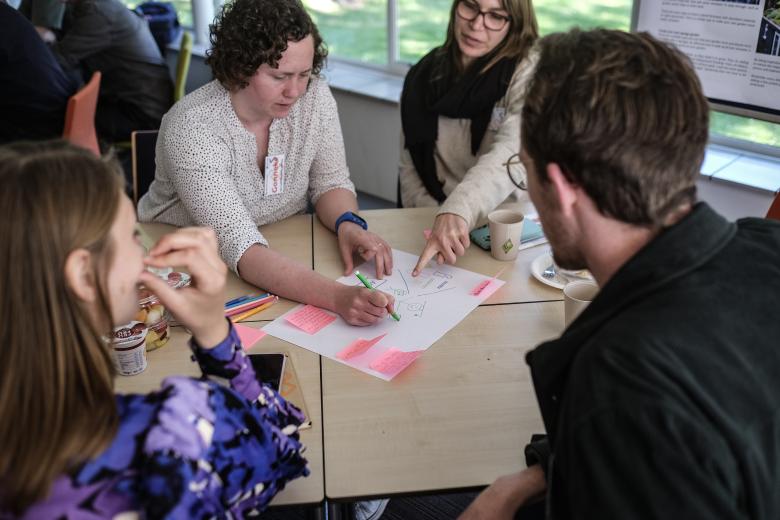
-
New video series: Education research in collaboration
EDLAB has released a new three-part video series, Education research in collaboration, highlighting how researchers and teaching staff work together to strengthen education through evidence-based innovation.
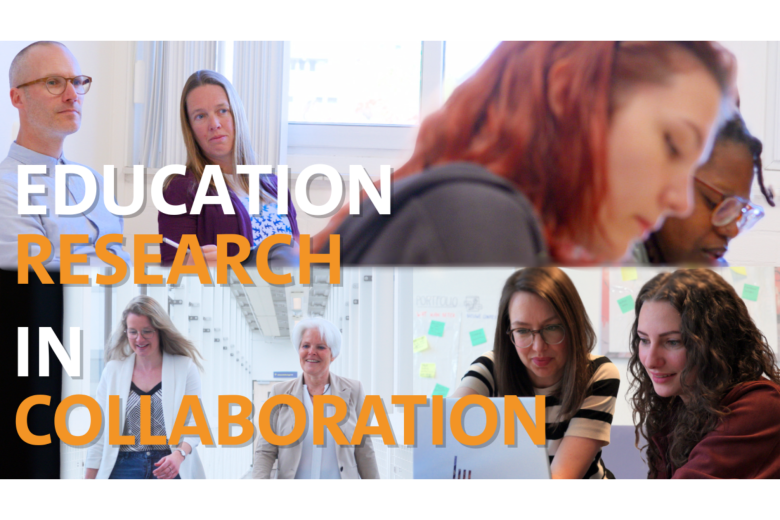
-
EDLAB Education Innovation grants: call for proposals 2025-2026
EDLAB invites Maastricht University teaching staff to apply for an EDLAB Education Innovation grant of €7,500. The application deadline is Thursday 13 November 2025, 12:00 CET.
